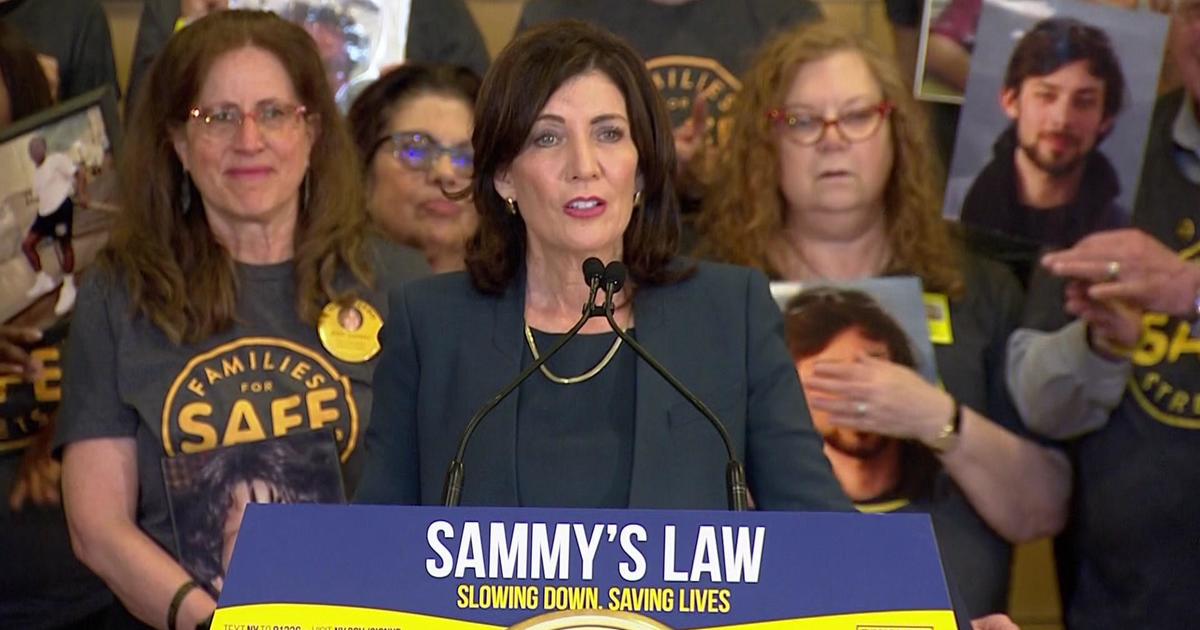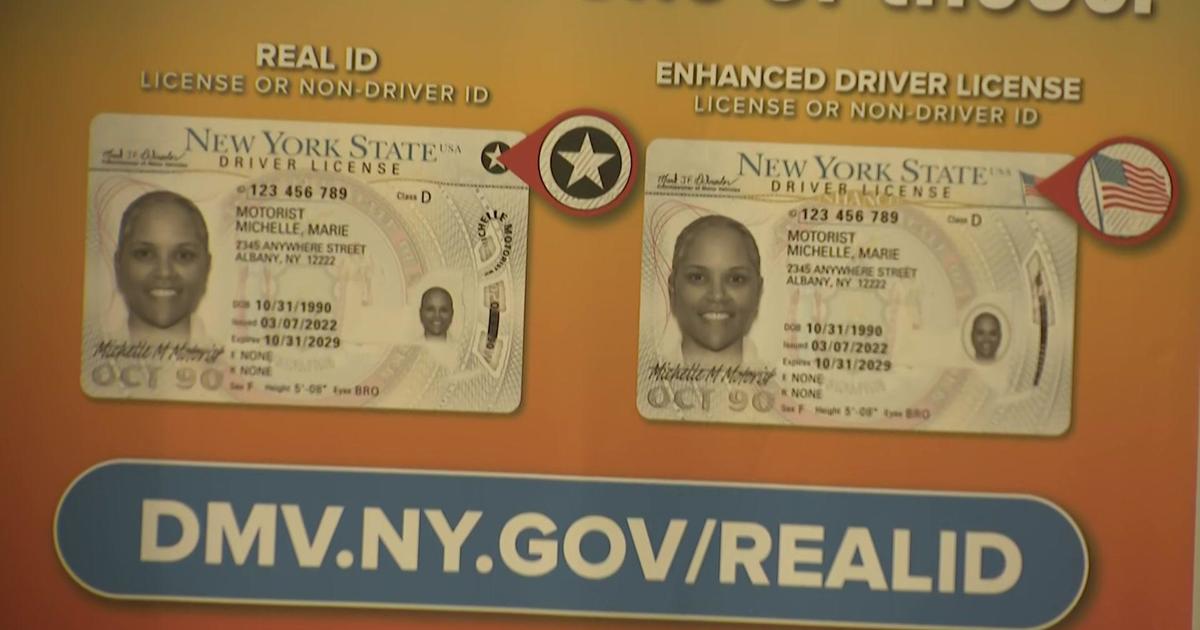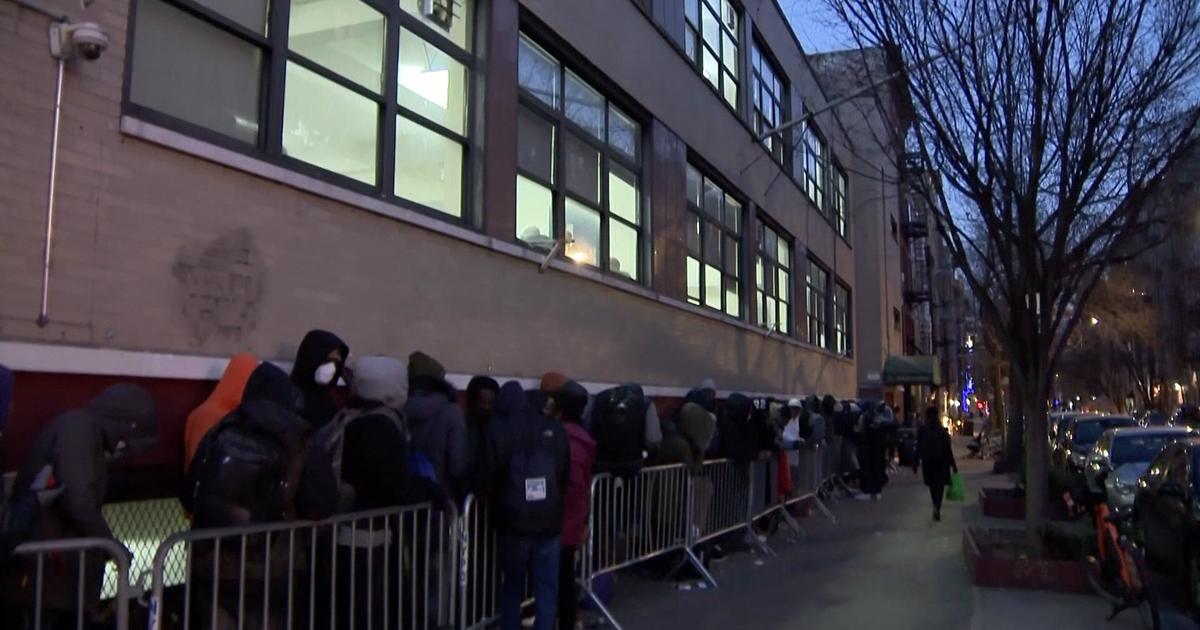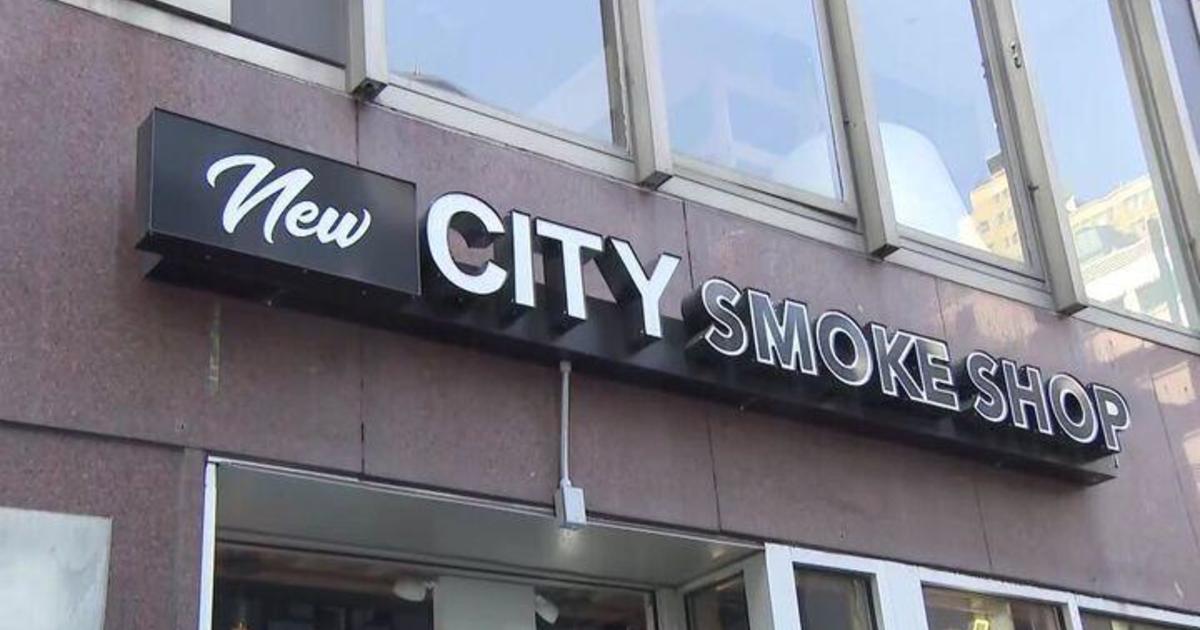Backers To Push For Plan To Allow Anti-Stop-And-Frisk Lawsuits Without Quinn's Support
NEW YORK (CBSNewYork/AP) -- A proposal to make it easier to sue over police stop-and-frisks is setting the stage for an unusual drama in New York City politics, as backers said Wednesday they would press to get it passed despite opposition from City Council Speaker Christine Quinn.
After months of negotiations with advocates, Quinn said she opposes the measure but wouldn't block a vote if backers take the rare step of pushing one without her support, and she acknowledged it very likely could pass.
"I understand this is a very important issue to a lot of people, so I don't want to stand in the way of there being a vote. And whatever happens, happens," Quinn said.
The interplay was a sign of the political charge encircling the NYPD's use of stop-and-frisk, a practice that has sparked debate over the lines between crime-fighting and civil liberties. Quinn's stance swiftly drew criticism from civil rights advocates, including the NAACP's president, but praise from Mayor Michael Bloomberg and Police Commissioner Raymond Kelly.
The lawsuit provision is perhaps the most keenly watched among several proposals to rein in the stops. The measure would let people sue police if they felt they were stopped because of bias based on race, sexual orientation or certain other factors. Plaintiffs wouldn't necessarily have to prove that a police officer intended to discriminate; instead, they could offer evidence that stop-and-frisk affects some groups disproportionately.
Under the latest version of the proposal, the suits could seek only court orders, not money.
Supporters said it would put teeth into prohibitions on racial profiling. Critics said it would drown the city in lawsuits.
Quinn said she feared judges' rulings could take control of police policy away from the mayor and police commissioner and "lead to a fragmentation of oversight and policy-making'' that could compromise public safety.
"And just as importantly, it could hamstring individual police officers and make them fearful of the decisions they have to make on a moment's notice," Quinn -- who is also the front-running Democratic candidate for mayor -- said during a public-safety speech at Hunter College.
The proposal's sponsors, Councilmen Brad Lander (D-39th) and Jumaane Williams (D-45th), urged her to reconsider her position but said they would see that the measure got a vote regardless -- an uncommon pledge in a council where Quinn generally controls what comes to the floor.
"New York City must turn the page on discriminatory policing," Lander and Williams said in a statement.
A chorus of community groups, minority advocates, union leaders and civil rights figures chimed in to add their disappointment with Quinn's decision. She "must understand that these excesses must be reined in if she wants the support of New York's communities of color," NAACP President Benjamin Jealous said in a statement.
But Kelly said Quinn had shown "an in-depth understanding of and support for the NYPD's continued focus on crime suppression and counterterrorism." And Bloomberg, who has been seen as a likely and important backer for Quinn in the mayor's race, said he was glad Quinn disapproved of an idea he thinks is terrible.
Meanwhile, Quinn reiterated Wednesday that she supports a proposal to create an inspector general for the police, even though Bloomberg and Kelly oppose it using some of the same arguments she does against the lawsuit measure. The inspector general plan has been propelled by concerns about both stop and frisk and the NYPD's widespread surveillance of Muslims, as disclosed in a series of stories by The Associated Press.
Stop and frisks have risen sharply in the city to total about 5 million in the last decade. More than 80 percent of those stopped are black or Hispanic.
The Supreme Court has said it's legal for police to stop, question and sometimes pat down people they believe are acting suspiciously, even if they don't meet the probable-cause standard for an arrest.
Recently, state Sen. Eric Adams claimed that Commissioner Ray Kelly told elected officials that the NYPD targets young black and Hispanic men for stop-and-frisk in order to instill fear in them so they won't carry guns when they leave their homes.
But police and Bloomberg say the tactic has helped reduce crime and the stops are based on valid suspicions, not racial profiling. Critics say it harasses innocent people and reflects racial bias.
The discussion has played out in protests, mayoral candidate forums, the Council chambers and an ongoing federal civil rights lawsuit.
The issue has been a pressure point for Quinn as a Democratic mayoral hopeful trying to balance liberal constituencies' stop-and-frisk criticisms against the arguments for it from Bloomberg and the popular police commissioner. Quinn has said she'd like Kelly to stay if she becomes mayor next year.
Quinn outlined a number of other public safety ideas on Wednesday, including adding 1,600 more police officers, buying 1,000 more mobile surveillance cameras and providing more officers with smartphones that let them look up such information as arrest records or warrants linked to an address. She also suggested developing mobile apps to allow people to summon help -- something like a cell-phone equivalent of a panic button -- and to report suspicious activity.
You May Also Be Interested In These Stories
(TM and © Copyright 2013 CBS Radio Inc. and its relevant subsidiaries. CBS RADIO and EYE Logo TM and Copyright 2013 CBS Broadcasting Inc. Used under license. All Rights Reserved. This material may not be published, broadcast, rewritten, or redistributed. The Associated Press contributed to this report.)



